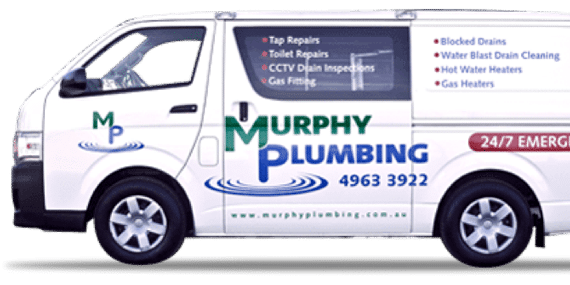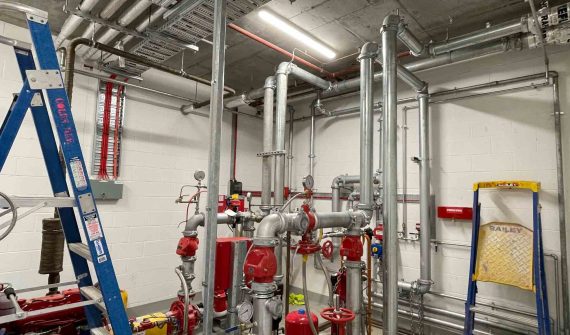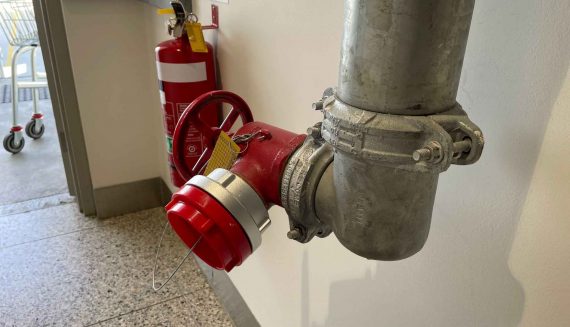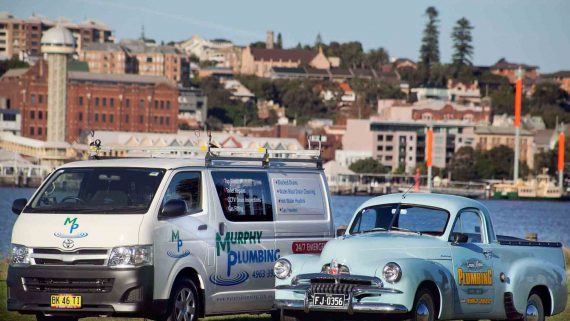Construction Plumbing Newcastle
Murphy Plumbing
We delivers dependable maintenance and repair services for commercial, industrial and agricultural properties. With expert staff, state-of-the art equipment and the drive to succeed, we can provide complete maintenance and reactive plumbing for hydraulic assets for medium to large-scale projects. We operate throughout the Central Coast and Hunter regions—including Newcastle, Maitland, Merewether, Lake Macquarie and the Hunter Valley.
Services we provide include:
- General maintenance to all plumbing & hydraulic fixtures
- Backflow prevention & thermostatic mixing valve testing
- Testing & certification of new installations
- Clearing & unblocking sewer & storm water drains
- Hot water system installations & replacement
- Filtration & instant hot water unit repairs & installations
- Roofing & guttering repairs
- Gas installations & maintenance services
- Fire hose reel installations
- Preventative maintenance schedules
- Disaster recovery services


Scheduled Maintenance Contracts
There are a number of legal requirements relating to hydraulic plumbing inspections. For example, backflow prevention devices must be inspected and tested every 12 months to ensure your water does not contaminate the mains supply.
Backflow Prevention Newcastle
At Murphy Plumbing, we recommend setting up a regular maintenance schedule, whether it is a statutory requirement or not. Preventative maintenance will keep your facility working at optimal capacity and help you avoid any costly repairs or downtime incurred by equipment or hydraulic system fails. Let us customise a scheduled maintenance package to suit your facility’s requirements.

Preventative Plumbing Maintenance For Ageing Homes
Older homes frequently experience a variety of plumbing problems due to their age and the materials used during their construction. These issues may include outdated fixtures, inefficient water heaters or sewer lines made of materials that are no longer suitable. Here are tips for maintaining an ageing home’s plumbing system:
- Regular inspections: As older plumbing materials are more prone to failure, regular inspections are even more critical for ageing homes.
- Upgrade where necessary: Upgrading or replacing outdated fixtures and appliances can help improve your system’s efficiency and longevity.
- Insulate pipes: Properly insulating your pipes can help prevent freezing in winter and keep your water temperature consistent.
- Water pressure management: High water pressure can put undue stress on older pipes and fixtures. A Pressure Reducing Valve (PRV) can help manage this and extend the lifespan of your plumbing system.
While older homes may present unique plumbing challenges, with regular inspections and a proactive approach to maintenance, you can ensure your plumbing system stands the test of time. At Murphy Plumbing, we are always here to help with all your plumbing maintenance needs.

Always Available
We can schedule our service around your operating hours and we also offer a 24-hour emergency service.
Contact Us
Call our Newcastle office today to discuss setting up a regular maintenance schedule and get an obligation-free quote.
Frequently Asked Questions
How often should I schedule preventative plumbing inspections?
Regular preventative plumbing inspections are the key to avoiding unexpected issues down the line. A thorough inspection every two years is often recommended for residential properties. However, for older properties, you might want to consider annual inspections due to their potential for more frequent plumbing problems.
What are the signs that I need preventative plumbing maintenance?
Plumbing problems are not always obvious. However, there are a few key signs that your system might need a maintenance check. If you notice your sinks or showers draining slower than usual or a tap that won’t stop dripping no matter how hard you tighten it, it’s time to consider an inspection. Similarly, reduced water pressure, frequent clogging of toilets and odd smells or sounds emanating from your pipes are all signs of potential issues. Changes in the colour or clarity of your tap water are also cause for concern.
What should I do if I suspect a plumbing issue?
The first step when you suspect a plumbing issue is to try and identify the problem’s source. However, unless you’re dealing with a simple fix, we don’t recommend following a DIY approach. There is always a risk of inadvertently exacerbating the problem and resulting in more extensive repairs. Instead, call a reliable professional to ensure the issue is properly diagnosed and addressed.
How can I prevent plumbing problems?
There are several steps you can take to help prevent plumbing problems. One of the most important steps is to be cautious about what goes down your drains. Oil and large food particles can cause blockages and should be disposed of properly, not rinsed down the sink. Investing in sink and shower drain strainers can also help catch hair and other debris that could lead to clogs.
Even seemingly minor issues like small leaks or slow drains should not be ignored, as they can be early indicators of more significant problems. Keeping your gutters clear of leaves and debris is another important preventative measure.
Is preventative plumbing maintenance covered by home insurance?
While insurance policies often cover damage resulting from sudden and unexpected plumbing issues, routine preventative maintenance is typically the responsibility of the homeowner. It’s always a good idea to review your policy documents or contact your insurance provider directly to get clarity on specific details.
Can preventative plumbing maintenance help me save money in the long run?
Absolutely. Preventative plumbing maintenance can save you money in the long run. Regular inspections can catch minor issues before they escalate into major, costly repairs. Additionally, well-maintained plumbing systems operate more efficiently, potentially saving on your water bills.
What does a preventative plumbing maintenance check involve?
A preventative plumbing maintenance check is a comprehensive overview of your entire plumbing system. This includes inspections of all visible pipes, taps, fixtures and the water heater; an examination of the condition of your drains; water pressure tests and a review of all seals. This thorough check-up can provide peace of mind that your system is in good working order and can help identify potential issues before they turn into major problems.
